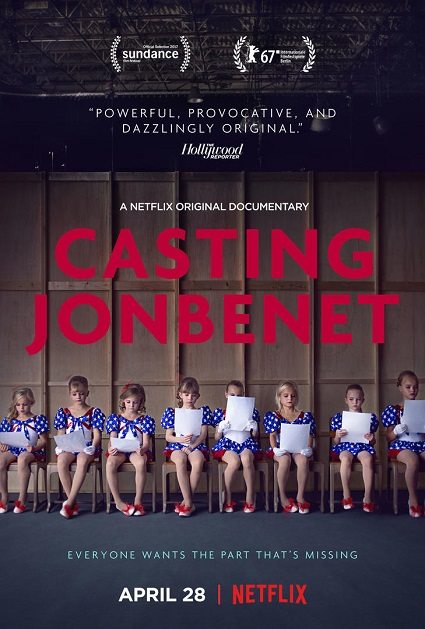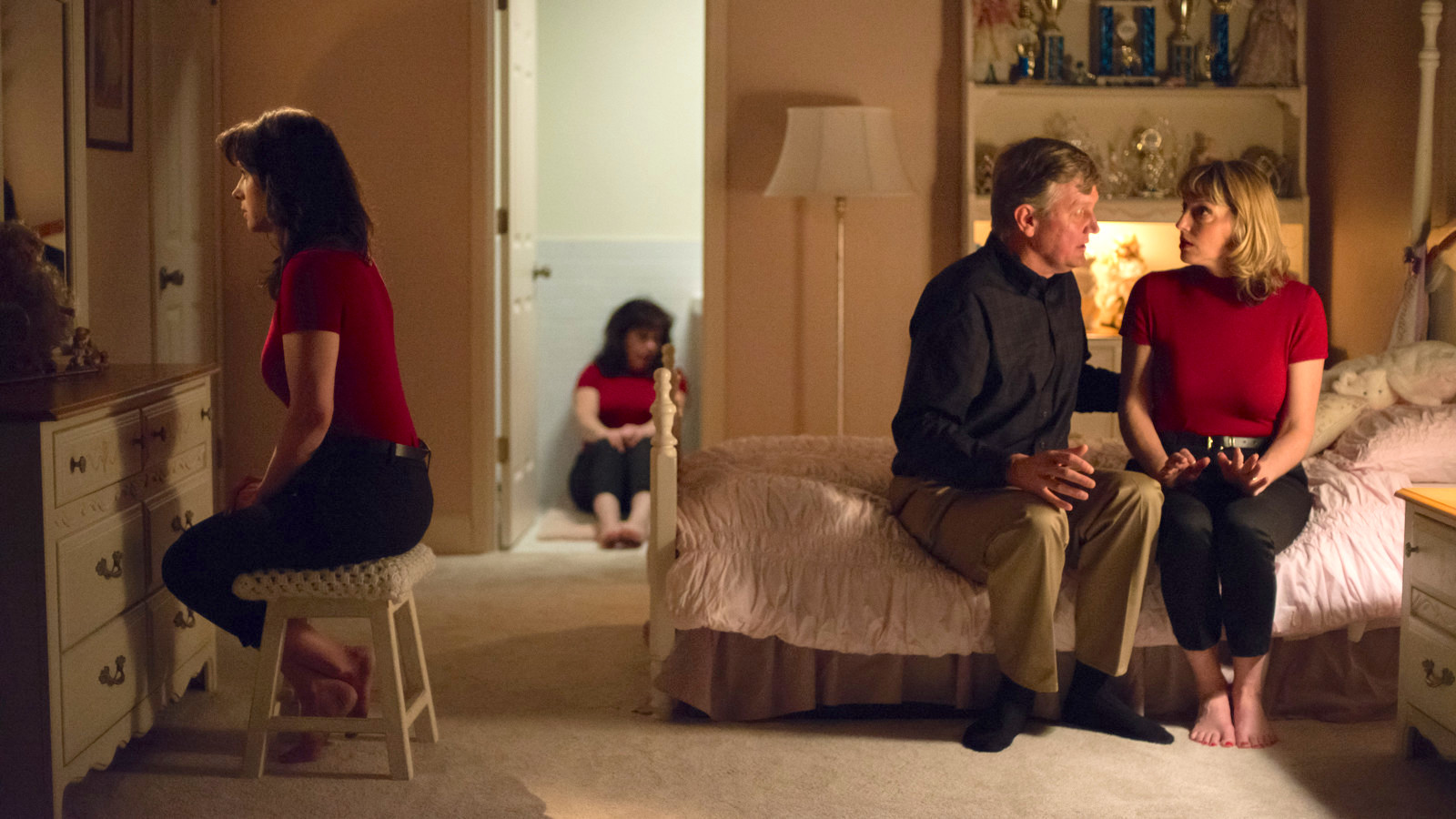By Glenn Dunks
 Casting JonBenet is a dozen films in one. At only 80 minutes, that’s a lot; and yet it never feels over-stuffed, overwrought, or like it is collecting and abandoning subplots (a frustrating trend of some recent documentaries). At its most basic level, Kitty Green’s film is a documentary about the casting of a film about JonBenet Ramsey. It is also a documentary about the Ramsey family and an investigation, of sorts, into the case. It’s a prank, a look into the making of a (seemingly) fake movie. But that's not all...
Casting JonBenet is a dozen films in one. At only 80 minutes, that’s a lot; and yet it never feels over-stuffed, overwrought, or like it is collecting and abandoning subplots (a frustrating trend of some recent documentaries). At its most basic level, Kitty Green’s film is a documentary about the casting of a film about JonBenet Ramsey. It is also a documentary about the Ramsey family and an investigation, of sorts, into the case. It’s a prank, a look into the making of a (seemingly) fake movie. But that's not all...
It’s also about Boulder, Colorado, and how all these years later the case still effects the town and its citizens. It's a look at America and its morbid fascination with this unsolved crime. It’s about how the long, nefarious arm of abuse and molestation has worked its way into the atmosphere of a town and of so many individual people...
It’s about death and how to cope with it. It’s about a lot of things. Then in its final five minutes – a quite frankly stunning tracking shot – it somehow becomes something new altogether. Something sadder and bigger with hints of, of all things, Bob Fosse’s All That Jazz (I think you’ll see what I mean when you see).
The film is an extension of the format she devised for The Face of Ukraine: Casting Oksana Baiul, a seven-minute short film that was also about the "casting" of a young girl who found herself in the spotlight. Simultaneously bigger in scope and yet somehow more intimate, Casting JonBenet is really something special and signals that its creator didn't just strike it lucky with the topic of her debut film - the excellent Ukraine is Not a Brothel. This is a filmmaker of real artistic immediacy.

For Kitty Green, one of her best skills and a defining trait is how she is able to expertly steer her film through the shifting sands of her narratives. It's one of the reasons Casting JonBenet works as well as it does beyond some sort of meta experiment. Her films never end where you think they might. They adapt in unexpected ways, often even at the hand of their own creator. This only seeks to make the films and the director more exciting. This is a filmmaker who isn’t content with making something that doesn’t challenge her as well as her subjects and her audience.
And she does this while never losing sight of the exquisite craft that gives remarkable polish to the worlds of ugliness that she chooses to delve into. Green along with her cinematographer Michael Latham and editor David Coombe find impeccable, occasionally frightening, rhythms in the collage of red sweaters modelled by the Patsy Ramsey auditionees – except one woman who, in Casting’s most typical documentary moment, details how she sees the pearls she wears as the essence of Patsy and chose to dress as she did on Larry King. A sequence involving a parade of Santa Clauses is filmed in a darker tones in what I can only assume is a moment of absurd humour on Green’s behalf. The addition of slow-mo a deftly sinister touch.
Amid her subjects’ musings on who committed the murder, the repetitious use of soundstages perhaps suggests Green’s own opinions on the matter. Or maybe it just suggests that JonBenet’s death is a stage of sorts that many, the actors featured within and Green herself, to perform on and to make all about themselves. That there are so many possible readings is only a part of why this film is so good.
This is indeed an excellent movie. One that, like its director’s earlier work, will linger and inspire and percolate for a long time. It will likely remind many of Kate Plays Christine, and they wouldn’t be wrong. It reminded me in some ways of Errol Morris’ The Thin Blue Line, although it lacks that 1988 film’s crimesolving twist. It’s no surprise that it took an Australian to go somewhere truly out-of-the-box with this newfound resurgence in exploiting true crime for entertainment. What is a surprise is that she has succeeding in bringing her unique point of view to a story that, for many, had no new fresh angles.
Release: Streaming globally on Netflix.
Oscar Chances: Doubtful, although perhaps if they're feeling playful it could make the long-list. Will critics remember this far back when it comes to awards? Critics groups have been oddly hesitant towards Netflix docs for whatever reason.